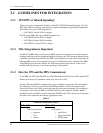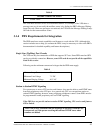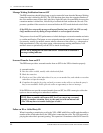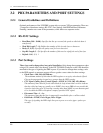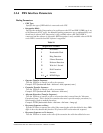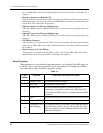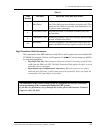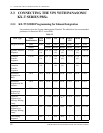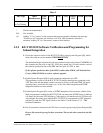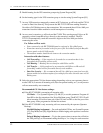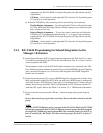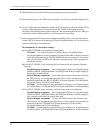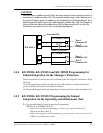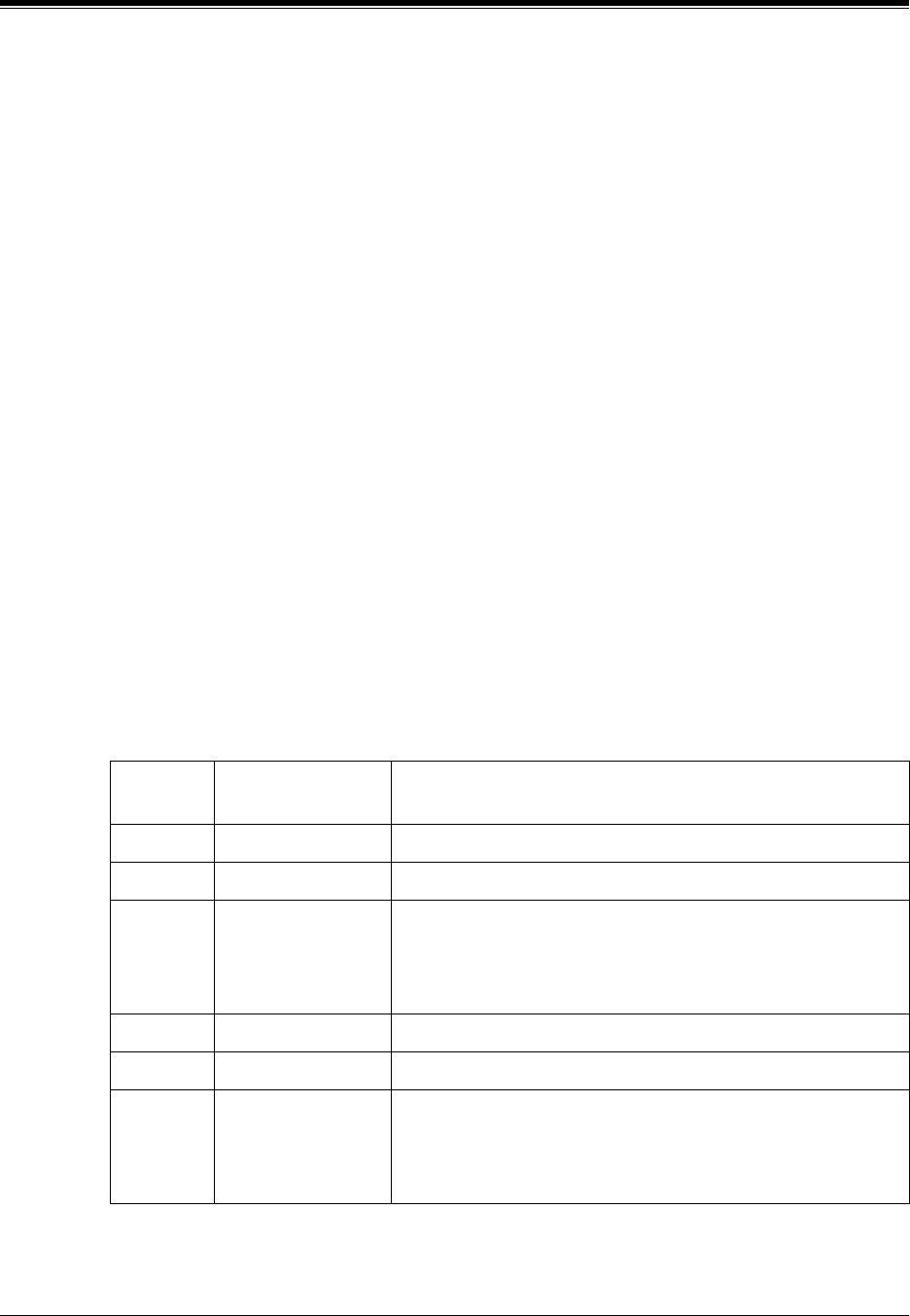
3.2 PBX PARAMETERS AND PORT SETTINGS
48
INTEGRATING THE VPS WITH PANASONIC KX-T PHONE SYSTEMS
answer. PBXs differ in how they handle this function. Test from an SLT to determine the
sequence.
•
Reconnect Sequence on Refused Call:
Tells the VPS how to return to the caller if the extension dialed has Call Screening enabled
and the subscriber chooses not to take the call. PBXs differ in how they handle this function.
Test from an SLT to determine the sequence.
•
Light On Sequence for Message Waiting Lamp:
This is the dialing sequence that the VPS must use to turn on a message waiting lamp at an
extension.
•
Light Off Sequence for Message Waiting Lamp:
This is the dialing sequence that the VPS must use to turn off a message waiting lamp at an
extension.
•
Call Waiting Sequence:
This sequence is carried out by the VPS to perform call waiting when the extension being
called is busy. PBXs differ in how they handle this function. Test from an SLT to determine
the sequence.
•
Release Sequence for Call Waiting:
This sequence is carried out by the VPS to release call waiting. PBXs differ in how they
handle this function. Test from an SLT to determine the sequence.
Inband Signaling
These parameters are used when the Integration Mode is set to Inband. If the PBX type is set
to a KX-T series system, these parameters will be automatically set. If another type PBX is
used, check that system's installation manual for settings.
Table 11
Code
(default)
Call State Sent to the Voice Mail Port When...
1 Ringback Tone The extension dialed is ringing.
2 Busy Tone The extension dialed is busy.
3
Reorder Tone An invalid extension number is dialed or the call is
inadvertently connected to another Voice Mail port (also
heard when no DTMF receiver is available to the Voice Mail
extension).
4 DND The extension dialed has set DND feature (Do Not Disturb).
5 Answer The extension dialed is answered.
6
Forwarded to Voice
Mail (Ringing)
The extension dialed is forwarded to Voice Mail and another
Voice Mail port is able to answer. (This lets the first Voice
Mail port, usually an Auto Attendant, send the call to the
other Voice Mail port.)





